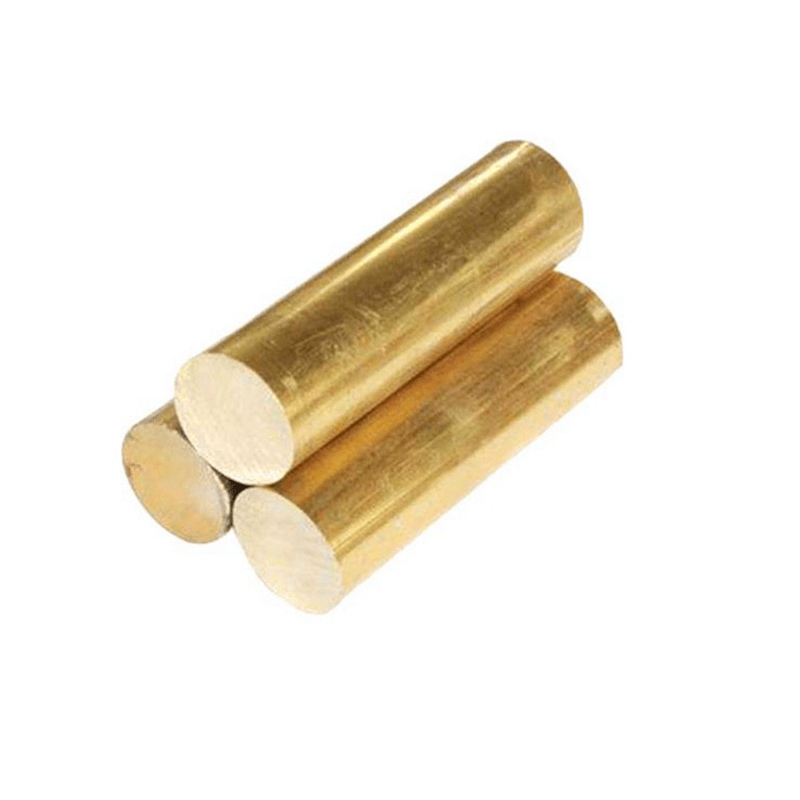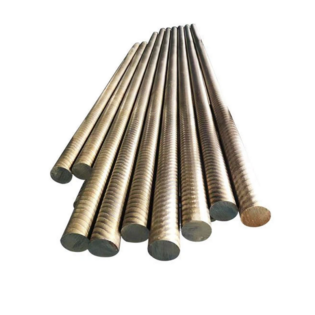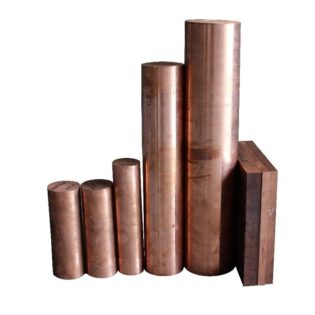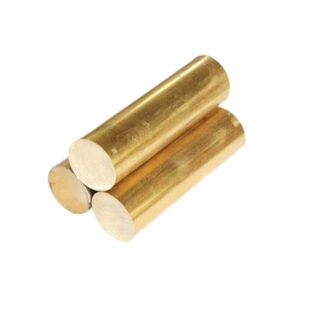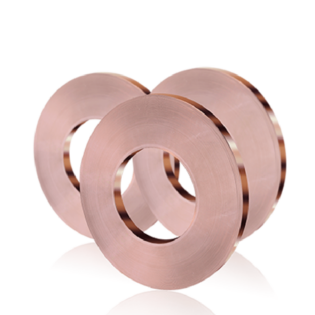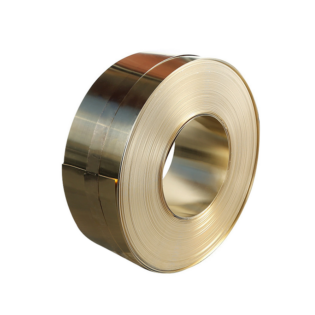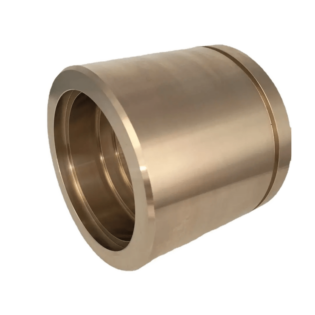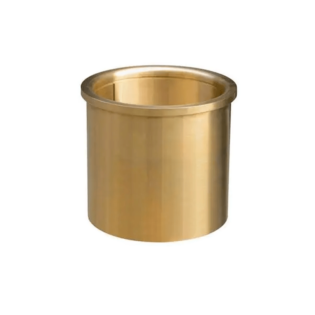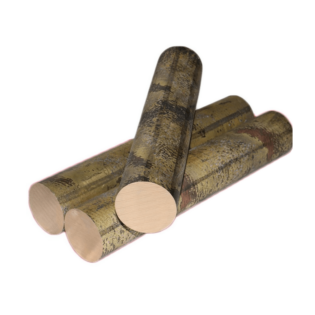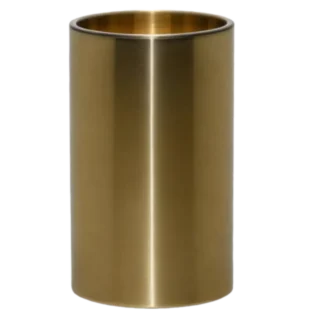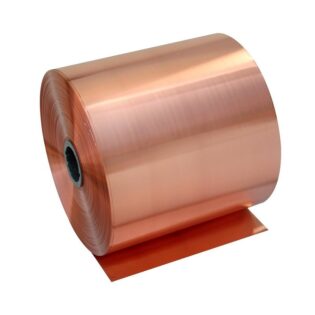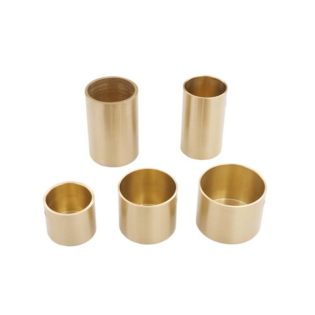C31400 PRODUCT DESCRIPTION:
Leaded Commercial Bronze
SOLIDS: 3/8″ to 2″ O.D.
HEX: 3/8″ to 2″ O.D.
STANDARD LENGTHS: 144″
Typical Uses
BUILDERS HARDWARE: door knobs
ELECTRICAL: connectors for wire and cable, electrical plug-type connectors
FASTENERS: nuts, screws
INDUSTRIAL: pickling crates, pickling fixtures, pickling racks, screw machine parts
- In the field of machining, C31400 lead brass is a widely used material. It has good cutting performance and wear resistance, so it is widely used in manufacturing high-precision parts and tools. The following details the processing characteristics, application areas and how to process and optimize C31400 lead brass.
Processing characteristics of C31400 lead brass
C31400 lead brass is an alloy material composed of copper, lead, zinc and other elements. This material has low hardness and is easy to machine. In addition, C31400 lead brass has excellent cutting performance and can be processed at high speeds, thereby improving production efficiency.
Application fields of C31400 lead brass
Because C31400 lead brass has good processing characteristics and mechanical properties, it is widely used in manufacturing high-precision parts and tools. For example, it can be used to manufacture precision parts such as cutting tools for machine tools, measuring tools, instruments and clocks. In addition, C31400 lead brass is also widely used in the electrical field, such as manufacturing conductive components and terminals.
Processing method of C31400 lead brass
The processing methods of C31400 lead brass mainly include milling, turning and drilling. During processing, you need to pay attention to the following points:
1. Select the appropriate tool material and tool angle. Due to the excellent cutting performance of C31400 lead brass, carbide cutting tools or high-performance high-speed steel cutting tools can be used for processing. At the same time, the selection of tool angle also needs to be adjusted according to the actual situation.
2. Control cutting speed and feed amount. When processing C31400 lead brass, excessive cutting speed and feed rate will cause increased tool wear and affect processing quality and accuracy. Therefore, it is necessary to choose the appropriate cutting speed and feed rate according to the actual situation.
3. Use coolant. The use of coolant during machining can lower cutting temperatures, reduce tool wear and workpiece deformation.
Optimization measures for C31400 lead brass
In order to improve the processing efficiency and product quality of C31400 lead brass, the following optimization measures can be taken:
1. Perform heat treatment. The hardness and wear resistance of C31400 lead brass can be improved through heat treatment, thereby improving its cutting performance.
2. Use coating technology. Coating technology can form a layer of wear-resistant material on the surface of the tool to improve the life and cutting efficiency of the tool.
3. Use intelligent processing technology. By using intelligent processing technology, the processing process can be controlled and optimized automatically to improve production efficiency and product quality.
Similar or Equivalent Specification
| CDA | ASTM | SAE | AMS | Federal | Military | Other |
|---|---|---|---|---|---|---|
| C31400 | B140 B140M | MIL-V-18436 |
Chemical Composition
| Cu% | Pb% | Zn% | Fe% | Ni% | |||||||
|---|---|---|---|---|---|---|---|---|---|---|---|
Chemical Composition according to ASTM B140/B140M-12(2017) Note: Cu + Sum of Named Elements, 99.6% min. Single values represent maximums. | |||||||||||
| 87.50- 90.50 | 1.30- 2.50 | Rem. | 0.10 | 0.70 | |||||||
Machinability
| Copper Alloy UNS No. | Machinability Rating | Density (lb/in3 at 68 °F) |
|---|---|---|
| C31400 | 80 | 0.319 |
Mechanical Properties
C31400
H02 Half Hard
SIZE RANGE: 1/2″ DIAMETER AND UNDER
| Tensile Strength, min | Yield Strength, at 0.5% Extension Under Load, min | Elongation, in 2 in. or 50 mm min | Rockwell “B” Hardness | Remarks | ||
|---|---|---|---|---|---|---|
| ksi | MPa | ksi | MPa | % | typical HRB | |
| 50 | 345 | 30 | 205 | 7 | 61 | |
SIZE RANGE: OVER 1/2″ DIAMETER TO 1″ INCLUSIVE
| Tensile Strength, min | Yield Strength, at 0.5% Extension Under Load, min | Elongation, in 2 in. or 50 mm min | Rockwell “B” Hardness | Remarks | ||
|---|---|---|---|---|---|---|
| ksi | MPa | ksi | MPa | % | typical HRB | |
| 45 | 310 | 27 | 185 | 10 | 61 | |
SIZE RANGE: OVER 1″ DIAMETER
| Tensile Strength, min | Yield Strength, at 0.5% Extension Under Load, min | Elongation, in 2 in. or 50 mm min | Rockwell “B” Hardness | Remarks | ||
|---|---|---|---|---|---|---|
| ksi | MPa | ksi | MPa | % | typical HRB | |
| 40 | 275 | 25 | 170 | 12 | 58 | |
C31400
H04 Hard
SIZE RANGE: 2″ DIAMETER AND UNDER
| Tensile Strength, min | Yield Strength, at 0.5% Extension Under Load, min | Elongation, in 2 in. or 50 mm min | Rockwell “B” Hardness | Remarks | ||
|---|---|---|---|---|---|---|
| ksi | MPa | ksi | MPa | % | typical HRB | |
| 53 | 365 | 40 | 275 | 6 | 65 | |
Physical Properties
Physical Properties provided by CDA | |||||||||||
| US Customary | Metric | ||||||||||
|---|---|---|---|---|---|---|---|---|---|---|---|
| Melting Point – Liquidus | 1900 °F | 1038 °C | |||||||||
| Melting Point – Solidus | 1850 °F | 1010 °C | |||||||||
| Density | 0.319 lb/in3 at 68 °F | 8.83 gm/cm3 at 20 °C | |||||||||
| Specific Gravity | 8.83 | 8.83 | |||||||||
| Electrical Conductivity | 42% IACS at 68 °F | 0.246 MegaSiemens/cm at 20 °C | |||||||||
| Thermal Conductivity | 104 Btu/sq ft/ft hr/°F at 68 °F | 180 W/m at 20 °C | |||||||||
| Coefficient of Thermal Expansion 68-572 | 10.2 ·10-6 per °F (68-572 °F) | 17.6 ·10-6 per °C (20-300 °C) | |||||||||
| Specific Heat Capacity | 0.09 Btu/lb/°F at 68 °F | 377.1 J/kg at 20 °C | |||||||||
| Modulus of Elasticity in Tension | 17000 ksi | 117212 MPa | |||||||||
| Modulus of Rigidity | 6400 ksi | 44127 MPa | |||||||||
Fabrication Properties
Fabrication Properties provided by CDA | |||||||||||
| Technique | Suitability | ||||||||||
|---|---|---|---|---|---|---|---|---|---|---|---|
| Soldering | Excellent | ||||||||||
| Brazing | Good | ||||||||||
| Oxyacetylene Welding | Not Recommended | ||||||||||
| Gas Shielded Arc Welding | Not Recommended | ||||||||||
| Coated Metal Arc Welding | Not Recommended | ||||||||||
| Spot Weld | Not Recommended | ||||||||||
| Seam Weld | Not Recommended | ||||||||||
| Butt Weld | Fair | ||||||||||
| Capacity for Being Cold Worked | Good | ||||||||||
| Capacity for Being Hot Formed | Poor | ||||||||||
| Machinability Rating | 80 | ||||||||||
Thermal Properties
Thermal Properties provided by CDA *Temperature is measured in Fahrenheit. | |||||||||||
| Treatment | Minimum* | Maximum* | |||||||||
|---|---|---|---|---|---|---|---|---|---|---|---|
| Annealing | 800 | 1200 | |||||||||
